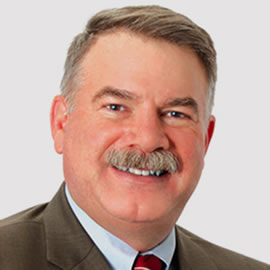“Fair winds and following seas.” — A toast or salutation between mariners (origin unknown)

Editor-In-Chief, Chester “Trip” Buckenmaier III, MD, COL (ret.), MC, USA
On May 30, 2021, my eldest daughter, Susan, married Dan Hoffman at Kent Manor Inn. For everyone involved, this was the event marking our emergence from the past 14 months of pandemic delight.
Like most American families, the prolonged isolation imposed by the pandemic has been challenging for mine. Family deaths and celebrations that would typically bring our tribe together to reestablish and strengthen bonds were thwarted, creating considerable stress. It has been hard for our family but blessedly not as brutal as this pandemic has been for many others. We choose to count our blessings rather than lament our trials.
This wedding was a collective sigh of relief for our extended family. It also was an opportunity for thoughtful reflection on what we have just passed through. We were finally able to gather, maskless—everyone was vaccinated—and satisfy the innate need of our species to gather with those we love the most. Most importantly, the wedding went off without any issues (the rain held off) that anyone noticed, apart from my wife, Pam, who masterfully orchestrated the details.
My role in this event was to be the supreme ’gofer” during the weekend festivities; I tried to be helpful as event after event passed by. During the weekend, friends and family asked what I planned to say during my toast at the reception as the bride’s father. Since this was essentially my only responsibility for the wedding (again, thank you, Pam), I spent an inordinate amount of brain-processing time on this task.
I approached my toast as I approach these editorials, writing and rewriting my thoughts in my head. Eventually, I spill the editorial I have already written in my head onto a page for you, the reader, to ponder and hopefully find value. Though I did not write anything down for the wedding, this process served me well enough during my toast that I actually received compliments regarding my father-of-the-bride oration. Following the wedding, Susan asked me to write down my speech for her. I would like to share those comments (as I remember them) because I feel they are instructive in both life and medicine.
Fair winds and following seas! Since I have always fancied myself as a sailing captain, I am partial to a sailor’s toast. Lord knows, Susan and Dan, your parents and I wish you nothing but fair winds and following seas in your life together. But anyone here today with some life experience knows that the storms of life will surely come. The last 14 months of the pandemic we have all just passed through, and the loved ones we have lost during this time, only proves my point. Today we celebrate your union with each other. We rejoice that in each other, you have found a co-captain, a compass rose to guide you through dangerous shoals, and someone to treasure during your journey. In each other, you have an ally, an advocate, a partner, a willing and sound crew member. As you guide your small vessel and the crew that may join you in the future through life, whether in calm or stormy seas, know that everyone here today has pledged to support you on this journey. Oh, and by the way, don’t sail where the birds are standing. That’s free advice.
Susan, I could not be prouder of you than I am today.
Dan, I am so pleased to welcome you as a son. Always remember, though, she loved me first.
So, I will end where I began by asking everyone to raise a glass and wish Susan and Dan fair winds and following seas!
It is instructive to remember that as federal medicine providers, our patients and their families are on their own journeys in life. Often, we meet our patients in some of the worst ‘weather’ of their lives. In addition to the healing recommendations we make, we should not forget the family members also involved in the patient’s care. We should not be insensitive to the difficulties family members are experiencing with an ill loved one. I always appreciate when family members are involved with a patient, and I always make a point to involve those loved ones in my discussions with patients during rounds. Sometimes the best information concerning the success or failure of my treatment plan comes from the patient’s loved ones. I have often lamented the wounded servicemember who arrives at the hospital with no family in my career. I know from experience that the recovery journey for these individuals will only be that much harder.
As my own family celebrates the newest addition to our clan, I dedicate this editorial to our patient’s family members. I will always be grateful for the important, though often underappreciated, contribution they provide to the recovery and rehabilitation of my patients. Strong family involvement, in my experience, definitely contributes to fairer winds and calmer seas as patients navigate the dangerous shoals of medical care during their rehabilitation and recovery journey.
